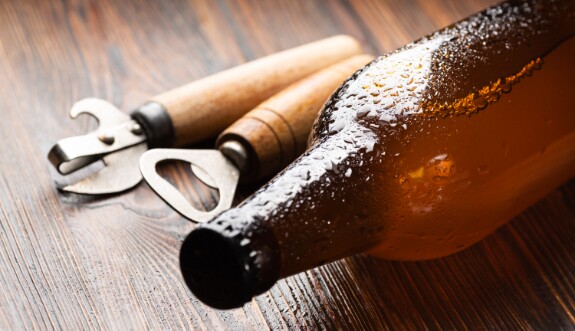What Are Bottle Openers Used For?
Bottle openers are practical tools that have been a staple in homes and bars for centuries. These handy gadgets play a vital role in effortlessly removing the caps or crowns from bottles, allowing you to enjoy your favorite beverages. In this article, we will explore the world of bottle openers, their history, types, uses, and even some surprising facts about them.
Introduction
Bottle openers, as the name suggests, are designed to open bottles. They serve a simple yet essential purpose – removing the cap from various types of bottles, such as beer, soda, or other carbonated beverages. Bottle openers come in a variety of forms, each with its unique mechanism for accomplishing this task.
The History of Bottle Openers
Bottle openers have a rich history dating back to the late 17th century. In the past, bottles had cork stoppers, and the process of opening them was quite different from what it is today. The first bottle openers were simple and handheld, often made of iron or steel. Over time, they evolved into the diverse range of bottle openers we have today.

Types of Bottle OpenersWall-Mounted Bottle Openers
Wall-mounted bottle openers are a popular choice for bars and kitchens. They are often attached to a wall or a solid surface and feature a convenient cap-catching receptacle. This type of opener is known for its durability and ease of use.
Handheld Bottle Openers
Handheld bottle openers are the most common type, often found in households. They are compact, affordable, and come in various designs. You can carry them in your pocket or keep one in your kitchen drawer.
The Mechanics of Bottle Openers
Understanding the mechanics of bottle openers can help you choose the right one for your needs.
Lever-Style Openers
Lever-style openers are designed to pry off bottle caps with a lever arm. They are easy to use and require minimal effort. Lever-style openers are a favorite among bartenders for their efficiency.
Pop-Top Openers
Pop-top openers, commonly used for soda and other non-alcoholic drinks, work by pushing down on a bottle cap to pop it off. These openers are user-friendly and often found on handheld bottle openers.
Creative Uses for Bottle Openers
Bottle openers have found their way into various creative and unconventional uses. From removing stubborn lids to scraping off stickers, their versatility goes beyond opening bottles.
Collecting Bottle Openers
Collecting bottle openers has become a hobby for many enthusiasts. Some vintage and unique bottle openers can be quite valuable. People often trade or showcase their collections at events and online forums.
How to Choose the Right Bottle Opener
Selecting the perfect bottle opener depends on your preferences and needs. Factors such as design, material, and functionality play a role in your decision.
Maintenance and Care of Bottle Openers
Proper care of your bottle opener ensures its longevity. Regular cleaning and maintenance will keep it in excellent working condition.
DIY Bottle Opener Ideas
DIY Bottle Opener Ideas
Feeling crafty? You can create your bottle opener at home using various materials. DIY bottle openers make for unique and personalized gifts.
The Role of Bottle Openers in Pop Culture
Bottle openers have made appearances in movies, TV shows, and even video games. They are often associated with camaraderie and the enjoyment of beverages.
Bottle Openers as Promotional Products
Many businesses use custom-branded bottle openers as promotional items. They are excellent marketing tools that are practical and long-lasting.
The Future of Bottle Openers
As technology advances, we may see innovative bottle opener designs and new materials. The basic function of opening bottles, however, will remain unchanged.
Conclusion
In conclusion, bottle openers are small but indispensable tools that simplify our lives and enhance our drinking experiences. From their historical evolution to their role in pop culture, bottle openers have secured a permanent place in our daily routines.